- About Us
-
Who we are
-
- Publications
-
- ADPC Academy
-
MediaADPC'S NEWS
ADPC and partners stress disaster preparedness at regional media workshop ADPC and partners stress disaster preparedness at regional media workshop
14 - 16 Nov 2016
Kuala Lumpur, Malaysia
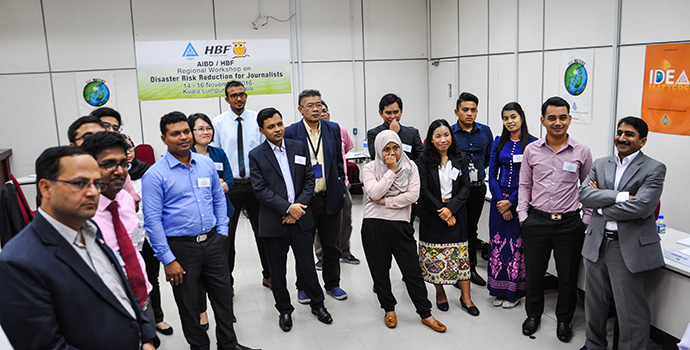
Participants stand for a closer look during a group learning session and discussion at the media training workshop.Asian Disaster Preparedness Center and partners organized a Regional Workshop on Disaster Risk Reduction for Journalists encouraging them to include disaster preparedness concepts in their reporting.
The training course is part of an ongoing effort to utilize the media’s role as information disseminators and build public awareness on mitigating and better preparing for natural hazards.
“Journalists should be equipped with climate change and disaster risk reduction information. Armed with this knowledge, they can convey the importance of disaster preparedness in a captivating manner,” said Saqib Sheikh, Programme Manager at the Asia Pacific Institute for Broadcasting Development (AIBD). “This proactive approach to reducing risk will help ensure audiences are well-informed before a disaster hits and can potentially save lives,” he continued.
The three-day workshop gave television and radio journalists the opportunity to enhance their understanding of disaster risk reduction and climate change adaptation while brainstorming the media’s role in reducing disaster risk.
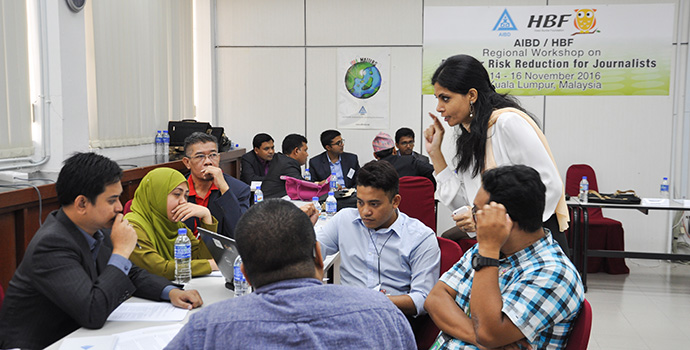
Ms. Vidya Rana, Communications Manager at ADPC, helps participants brainstorm story ideas that can include disaster preparedness concepts during a group activity on the last day of the media training workshop.Facilitators encouraged participants to include disaster preparedness concepts in their video and audio news stories as a first step towards awareness raising. This strategy can help feature disaster risk reduction concepts in the news more regularly without making significant changes to their reporting assignments.
The importance of storytelling and adding a human element to captivate audiences was another key theme throughout the training.
Ms. Darin Klong Ugkara, a news editor and the host of a popular talk show on disaster and weather reporting at Thai Public Broadcasting Service (Thai PBS), attended the event as one of the facilitators. Her firsthand experience provided participants with strategies on how to make disaster risk reduction news entertaining for audiences while still being informative.
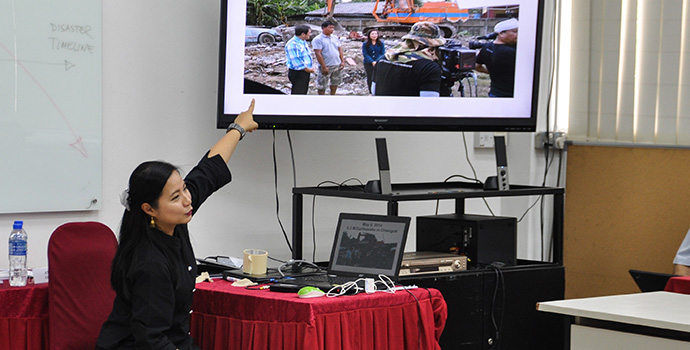
Ms. Darin Klong Ugkara, Thai PBS, talks to participants about the importance of educating viewers on different types of disasters even if the hazard seems unlikely to occur. She used the case of the 6.3 M earthquake in Chiang Rai, Thailand, on 5 May 2014 as an example.Atiq Ahmed, Program Manager, ADPC, talked to participants about climate change, adaptation and how changing weather patterns will affect the most vulnerable in society.
Andy Mcelroy, UNSIDR, also acted as a facilitator during the event. He talked about his experience as a journalist and why some news stories are featured in international headlines over others.
He also emphasized that media personnel are listed as one of the key stakeholders in the Sendai Framework for Disaster Risk Reduction and hold a special responsibility to help lower disaster risk by keeping the public informed.
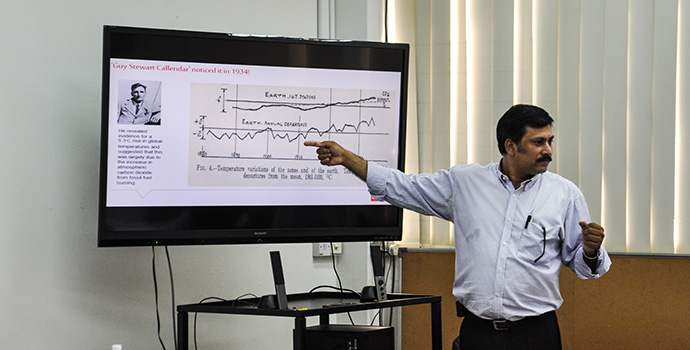
Atiq Ahmed, ADPC, talks about evidence of global warming appearing as far back as 1934 thanks to the research of Guy Stewart Callendar.Participants from 12 countries including Bangladesh, Brunei, Cambodia, Fiji, Laos, Malaysia, Maldives, Myanmar, Nepal, Pakistan, Sri Lanka, and Viet Nam had the opportunity to showcase their work during the workshop while facilitators provided feedback.
AIBD with support from the Hoso Bunka Foundation hosted the event.
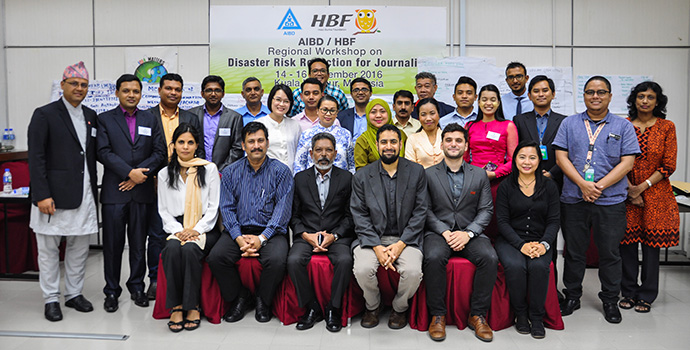
Participants, facilitators and AIBD representatives pause for a group photo on the last day of the media workshop.Latest NewsRelated Trainings
-